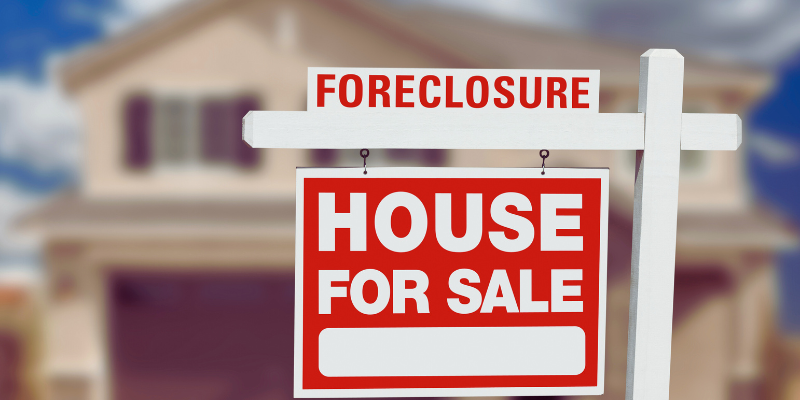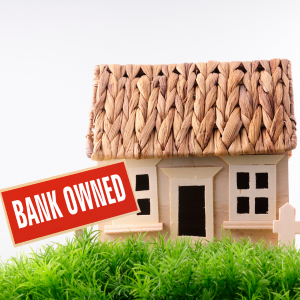
Understanding the Foreclosure Process in Maryland
Understanding the foreclosure process in Maryland is vital for any homeowner dealing with financial struggles. Foreclosure is the legal procedure that permits a lender to take back a home when mortgage payments are missed over a period of time.
The process begins once the lender files a Notice of Default, usually after several missed installments, which marks the start of pre-foreclosure. Unlike some states, Maryland relies on a judicial foreclosure process, meaning the lender must petition the court for permission before the property can be sold at auction.
This legal requirement gives homeowners a valuable chance to intervene by pursuing alternatives such as loan modification, refinancing, or direct negotiations with their lender. During this period, knowing your rights and exploring available solutions can make the difference between keeping or losing your property.
Seeking advice from a real estate attorney with foreclosure experience in Maryland provides critical guidance. Homeowners may also participate in mediation sessions offered by the state, which often create opportunities to reach agreements with lenders.
Homeowners can make better decisions and increase their chances of getting better results if they fully understand the steps in Maryland’s foreclosure process, from the first warning to the possible sale at auction.
Legal Rights and Responsibilities of Sellers During a Maryland Foreclosure Sale
Selling a Maryland home during foreclosure requires a clear understanding of both your rights and obligations. State law grants protections for homeowners, including the right to proper notice before the foreclosure process moves forward.
By law, lenders must issue a Notice of Intent to Foreclose at least 45 days before filing a foreclosure complaint in court. Homeowners retain the right to sell their property any time before the foreclosure sale is finalized, which could prevent further credit damage or avoid deficiency judgments.
But buyers have important duties too, like giving full and correct information about the property when they list it. It’s very important to keep in touch with the banker, especially if you need to do a short sale because the home is worth less than the mortgage.
Understanding these legal requirements and handling them carefully helps reduce complications and creates a smoother process, even under stressful financial conditions.
Financial Implications of Selling a Home Undergoing Foreclosure in Maryland
Selling a home under foreclosure in Maryland carries serious financial consequences that must be understood in detail. One major factor is the effect on your credit score, since foreclosure activity can limit future borrowing opportunities for years.
Choosing to sell your home before the foreclosure process is completed may protect you from a deficiency judgment and soften the overall financial impact. Timing plays an important role because selling the property quickly can cover outstanding balances and minimize legal fees.
Also, it’s important to know that Maryland has its own foreclosure rules, so it’s important to work with experts who know them. Lawyers who know Maryland’s court system and real estate agents who have experience with short sales and foreclosures can be very helpful.
Beyond protecting your credit, these experts can advise on tax issues, including forgiven debt that may count as taxable income under certain state or federal rules. They can also help you understand capital gains tax after selling a house, ensuring you know when it applies and how to minimize your liability. Taking proactive steps can lessen the burden while maximizing recovery from the sale.
Preparing Your Maryland House for Sale During Foreclosure

Getting a Maryland foreclosed home ready to sell takes both careful planning and attention to how it looks. Start by making changes to the outside of the house, like cutting the grass, trimming the bushes, and growing flowers, to make a nice first impression.
Inside, decluttering and removing personal items helps potential buyers envision themselves living in the property. Address safety concerns and complete necessary repairs, since overlooked issues may discourage offers. Painting in neutral tones can also brighten rooms and attract more interest.
Keep all the necessary papers on hand, especially the ones that have to do with Maryland’s rules on foreclosure notification. Working with a real estate agent who has experience with foreclosures will make the process easier to handle and improve the chances of selling the house faster.
With the right preparation, you’ll present the home as competitively as possible even in a challenging situation.
Marketing Strategies for Selling a Foreclosed Home in Maryland
You need to market a foreclosed home well if you want to sell it. First, use professional pictures and detailed virtual tours to show off the best parts of the property and get serious buyers interested.
List the home on well-known real estate platforms, making sure to include targeted keywords like “Maryland foreclosure” to boost visibility. Collaborating with a real estate agent familiar with foreclosure sales ensures your marketing aligns with current buyer demand and pricing trends.
Staging the house can make it look better and show off what it can do. Holding open houses in person and online gets your home seen by more people and gives buyers direct access to the property.
Finally, using social media sites like Facebook or Instagram lets you reach a bigger group of potential buyers, which increases competition and interest.
How to Price Your Foreclosed Home Competitively in the Maryland Market
Pricing a foreclosed home requires careful research and awareness of local conditions. Begin by reviewing comparable sales in your neighborhood to understand the market’s direction.
Work with a real estate agent who has experience with foreclosure sales, knows how the Maryland real estate market works, and can give you an exact price range.
Because foreclosure often comes with urgency, aim to set a price that captures buyers’ attention quickly but still secures as much return as possible. Keep track of local economic shifts and housing indicators that could impact property values and adjust accordingly.
A well-researched price ensures your home stands out competitively and sells faster despite foreclosure challenges.
Navigating Maryland’s Real Estate Market for Foreclosed Properties
Understanding the state-specific rules and deadlines that govern the process of selling a foreclosed home in Maryland is important. Usually, these legal factors decide how long it will take to sell something.
If you work with a real estate agent who specializes in foreclosure sales, they can give you market-specific information about prices and buyer desire. Comparing your home to nearby foreclosed homes that have recently sold will also help you set realistic goals.
Making repairs, improving your home’s curb appeal, and being transparent with disclosures are all ways to build trust with potential buyers. Strong marketing strategies, both online and offline, can also generate more attention and genuine interest in your property. If you’re selling a house in bad condition, the right guidance can help you highlight the property’s potential, attract the right buyers, and still move toward a successful transaction in the Maryland market.
And if you’d rather skip the stress, Direct MD Cash Buyers buys houses in cash in any situation—call us today.
Engaging Buyers Interested in Purchasing Bank-owned Homes in Maryland

To make a sale go through, you need to find buyers who are looking for bank-owned or foreclosed homes. Investors and buyers who want to get the best deal may be more interested in your ad if you talk about cost savings and the chance for future equity growth.
Posting the home on foreclosure-specific platforms and participating in local auctions can further expand visibility. A real estate agent who knows Maryland’s foreclosure market will also understand how to appeal to this particular buyer pool.
By hosting open houses—whether virtually or in person—you provide buyers with valuable opportunities to experience the property firsthand. Highlighting any repairs or upgrades you’ve completed can make your home stand out from other distressed listings. And if you’re looking for a faster solution, we buy houses in Maryland in any condition.
Providing clear details about neighborhood amenities and schools can also help secure stronger offers.
Negotiating with Lenders During the Sale of a Foreclosed Home in Maryland
Communication with lenders is one of the most important parts of selling a foreclosed home. Contacting your lender early gives you time to explore loan modification options or possible short sale approval before the foreclosure advances too far.
When negotiating, provide complete documentation and demonstrate financial hardship to strengthen your case. A skilled real estate agent familiar with Maryland foreclosure sales can help present fair market value to the lender, which supports negotiation efforts.
Maintaining organized records and tracking communications ensures smoother discussions. In many cases, these negotiations can reduce debt or delay proceedings, giving you more room to manage the sale effectively.
The Role of Short Sales When Dealing with Foreclosures in Maryland
Short sales are a good option for Maryland homes who are facing foreclosure. In this method, the house sells for less than the mortgage balance, but the lender decides to take that small amount.
The main advantage is avoiding the more damaging effects of foreclosure on credit. However, lenders require proof of financial hardship before granting approval for a reduced payoff.
Because short sales are complex, working with agents who have direct experience in these transactions is highly recommended. Lenders often prefer them over full foreclosure since it allows faster resolution and helps recover part of the loan.
By pursuing this option strategically and understanding Maryland’s foreclosure rules, you may protect both your finances and your credit.
How Bankruptcy Affects the Sale of a House in Foreclosure in Maryland
Bankruptcy can temporarily change the course of foreclosure in Maryland. Filing for bankruptcy triggers an automatic stay, which stops the foreclosure process for a period of time.
This pause can be used to find a buyer, though different bankruptcy types have different impacts. For example, Chapter 7 bankruptcy may involve liquidation of assets, while Chapter 13 could restructure debts and allow you to keep the home.
Selling during bankruptcy requires court approval, so legal support is critical. Real estate attorneys who understand both foreclosure and bankruptcy law in Maryland will help ensure the process runs smoothly.
With professional help and honest communication, it’s possible to navigate both challenges simultaneously.
Impact of Credit on Your Ability to Sell a House During a Maryland Foreclosure
Foreclosure can have a long-lasting effect on your credit, often staying visible for years. Since buyers may perceive financial instability, this can complicate the process of selling during foreclosure.
Taking steps to demonstrate financial responsibility can improve the situation. Making efforts to negotiate with creditors or correct late payments shows good faith and may reassure potential buyers.
Options such as short sales or loan modifications can also help protect your credit more than a completed foreclosure. A knowledgeable Maryland foreclosure agent can provide strategies to maintain transparency and still attract qualified buyers.
Being proactive with credit management is key to keeping the selling process on track.
Common Pitfalls to Avoid When Selling a House in Foreclosure in Maryland
Homeowners frequently make avoidable mistakes when selling a home under foreclosure in Maryland. One of the most serious errors is misunderstanding state foreclosure laws, which can create unnecessary financial or legal setbacks.
Another common misstep is setting an unrealistic asking price. Trying to overprice the property to cover debts often discourages potential buyers instead of drawing them in.
Skipping needed repairs, avoiding marketing efforts, or failing to work with foreclosure-experienced agents are additional pitfalls that reduce your chances of a smooth sale.
Some homeowners also assume that signing a quitclaim deed will automatically relieve them of mortgage debt, but this is a misconception. A quitclaim deed only transfers ownership interest—it does not remove the borrower’s financial responsibility to the lender. Misusing this tool can lead to costly surprises if the loan remains in your name after the transfer.
Considering options like short sales or professional financial advice early can prevent these issues and lead to better results.
Closing Process: Finalizing the Sale of Your House Undergoing Foreclosure

Finalizing the sale of a Maryland home in foreclosure requires organization and careful oversight. All outstanding liens or property-related debts must be resolved before closing can occur.
Working closely with your attorney and real estate agent ensures every step complies with Maryland foreclosure laws. Lender approval, particularly for short sales, is a critical requirement.
Accurate documentation such as settlement statements and payoff figures should be reviewed in detail to avoid delays. Clear communication with buyers helps confirm all conditions are met before finalizing the transaction.
By staying proactive, you can bring the process to completion and close successfully even in the midst of foreclosure.
Post-sale Considerations: Moving Forward After Selling a Foreclosed Property
Once your Maryland home has been sold, focus shifts to post-sale responsibilities. Begin by reviewing the final settlement to make sure all terms are satisfied and the foreclosure is officially closed.
If there were liens involved, remember that the possibility of selling a house with a lien exists, but any remaining debts, including liens or taxes, must still be addressed. Neglecting these could hurt your credit rating. Speaking with a financial advisor helps you plan for rebuilding credit and stabilizing your finances.
You’ll also need to arrange for housing, update your address records, and manage communication with creditors if further repayment plans are required. Seeking guidance from real estate or legal professionals can support your recovery and help prepare for future homeownership opportunities.
Can You Sell Your Home When It’s in Foreclosure?
Yes, homeowners in Maryland can sell their property while it’s in foreclosure, and doing so can prevent more serious financial fallout. By initiating a short sale or negotiated transaction, it’s possible to resolve the mortgage debt more favorably.
Acting quickly is important, since delays give lenders less reason to negotiate. Partnering with agents familiar with Maryland’s foreclosure laws ensures the process is handled correctly.
Keeping lenders updated and cooperating in good faith can make negotiations smoother. Selling during foreclosure offers a chance to limit credit damage and regain some financial stability.
Do Banks Usually Negotiate on Foreclosures?
Banks often prefer to negotiate rather than go through the costly and lengthy foreclosure process. They may consider short sales or allow loan modifications if you can prove financial hardship.
Preparing documents that demonstrate your financial situation can strengthen your case. Professional agents with foreclosure experience know how to package proposals that appeal to lenders.
While not every negotiation is successful, many banks are open to exploring alternatives since it helps reduce their costs and risks. For homeowners looking to sell your house fast in Baltimore, maintaining open communication with lenders becomes a crucial step.
How Much Will My House Sell for in Foreclosure?
Foreclosed homes usually sell for less than traditional listings because of urgency and financial pressure. Market conditions in Maryland, especially recent neighborhood sales, will strongly affect your final sale price.
The condition of the home also matters; properties in better shape typically attract higher offers, even under foreclosure circumstances. Lenders prioritize recovering their investment quickly, so competitive pricing is key.
Real estate agents who specialize in Maryland foreclosure sales can provide a realistic price range, balancing urgency with financial return. With careful strategy, you can still maximize recovery.
Is It Better to Sell or Foreclose?
Many Maryland homeowners wrestle with whether to sell or allow foreclosure to proceed. Selling your home during foreclosure gives you greater control and may preserve some equity while protecting your credit from severe damage.
Letting foreclosure run its course typically results in long-term credit harm, lasting up to seven years and affecting future loans.
Pursuing a sale—whether through traditional listing or a short sale—usually leads to a more manageable financial outcome. By acting proactively, you can safeguard your creditworthiness and begin planning for recovery sooner.
Helpful Maryland Blog Articles
- Selling Your Home By Owner In Maryland
- Selling A Probate House In Maryland
- Selling Your Home During A Divorce In Maryland
- Selling Your Maryland Home During Foreclosure
- Filing A Quitclaim Deed For Real Estate In Maryland
- Selling Tenant Occupied Property in Maryland
- Selling a House in Bad Condition in Maryland
- Who Pays Taxes When Selling a House in Maryland?
- How to Handle an Inherited House with Sibling in Maryland
- How Do I Get My Name Off a Mortgage in Maryland?
- Can You Sell A House with Asbestos in Maryland
- Can the Seller Back Out of A Contract in Maryland
- How to Sell A Condemned House in Maryland

| MEDIATOR | MORTGAGES | MORTGAGE DEBT | MORTGAGE LOAN | LOSS MITIGATION | EVICTION |
| EVICTION NOTICE | DOCKET | AFFIDAVIT | CASH | BANKING | LEGAL SERVICES |
| LAWYER | LEGAL ACTION | AUCTIONEER | WASHINGTON | DISTRICT OF COLUMBIA | WASHINGTON DC |
| CERTIFIED MAIL | RATIFICATION | DEED | WALDORF | NEWSPAPER | JUDGE |
| JERSEY | DEBTOR | CONNECTICUT | ADMINISTRATIVE LAW JUDGE | FINAL LOSS MITIGATION | |
| LOSS MITIGATION AFFIDAVIT | THE ORDER TO DOCKET | PRELIMINARY LOSS MITIGATION AFFIDAVIT | FINAL LOSS MITIGATION AFFIDAVIT | A FINAL LOSS MITIGATION | THE FINAL LOSS MITIGATION |
| REQUEST FOR FORECLOSURE MEDIATION |
